Messages from the President and the Vice Presidents
In accordance with our educational philosophy of “Do for Others,” Meiji Gakuin University offers a Christian-based education in the tradition of our founder, James C. Hepburn.

Makoto Imao
President
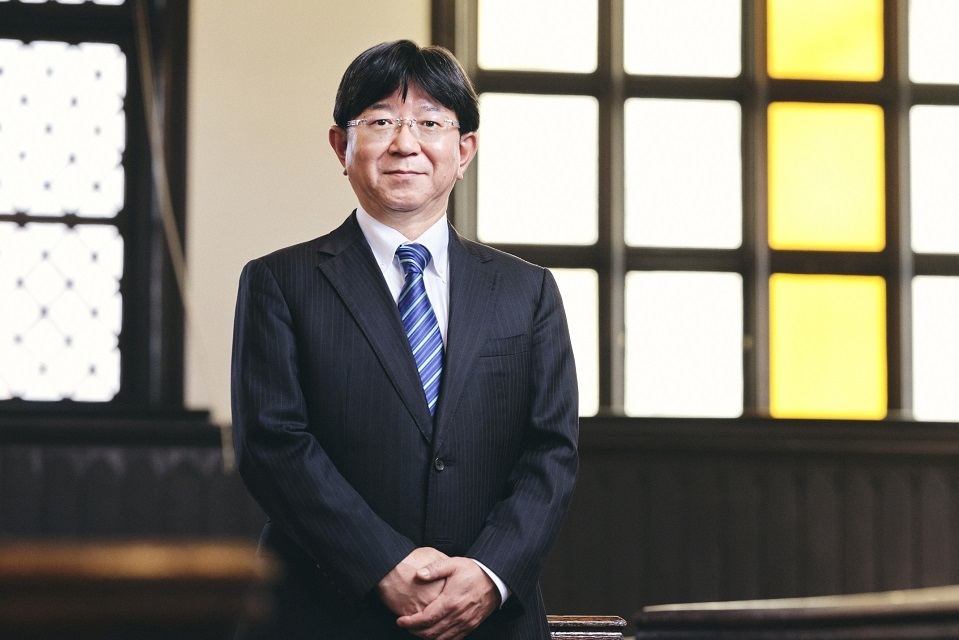
Learner-centered education in the spirit of “Do for Others”
Guided by the principles of Christian education and academic freedom, Meiji Gakuin University upholds the vision of its founder, Dr. J.C. Hepburn, who lived the philosophy of “Do for Others.” These values are needed more than ever in a world that faces numerous challenges: the rapid development of technology, worldwide pursuit of profit and efficiency, and the worsening of social inequalities, conflicts, and global warming.
In these unpredictable times, it is difficult to find solutions to complex social issues through compartmentalized study in individual faculties and departments. At Meiji Gakuin University, we are dedicated to helping our students develop diverse and flexible thinking skills that transcend discipline and specialty. We offer a learner-oriented education in an environment that enables students to set clear educational goals and achieve real academic success.
Right now, our society needs people capable of thinking from multidisciplinary perspectives. As the recent global pandemic made clear, a general education must encompass digital literacy so that students can learn how to use qualitative data to find solutions to problems for which there is no right answer. Accordingly, we have collaborated with the new Faculty of Mathematical Informatics to make AI and data science programs available to all students. As a result, students of the humanities and social sciences can now experience firsthand the importance of attaining competence in mathematics, AI, and data science as they study these topics. Conversely, students in the Faculty of Mathematical Informatics can also study areas of interest in the humanities and social sciences.
In addition, we must also think about values that are not apparent in numbers and data alone. A true general education must help students learn to think about people and society, what it means to lead a fulfilling life, and how to be open and tolerant. People continue to learn throughout their lives. It is my hope that students will view their general education as the basis of their whole four years of study at the university, rather than something that concludes after just one or two years.
In this way, Meiji Gakuin University is using its strengths as a university to prepare students to contribute to society in the spirit of “Do for Others.”
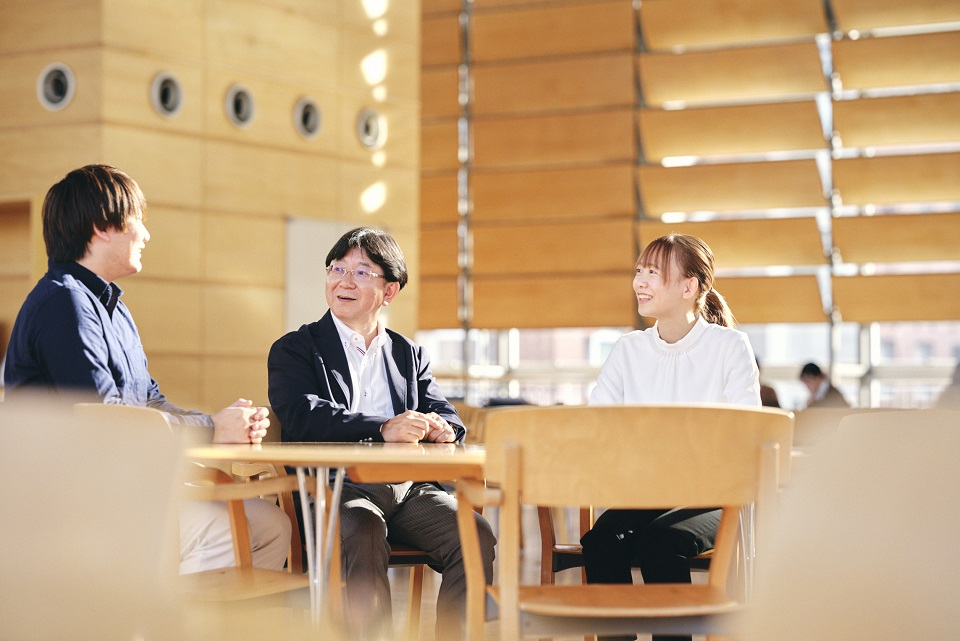
Koki Abe
Vice President(Professor, Faculty of International Studies)
Responsibilities:Yokohama campus facility management, international programs, university academic reform
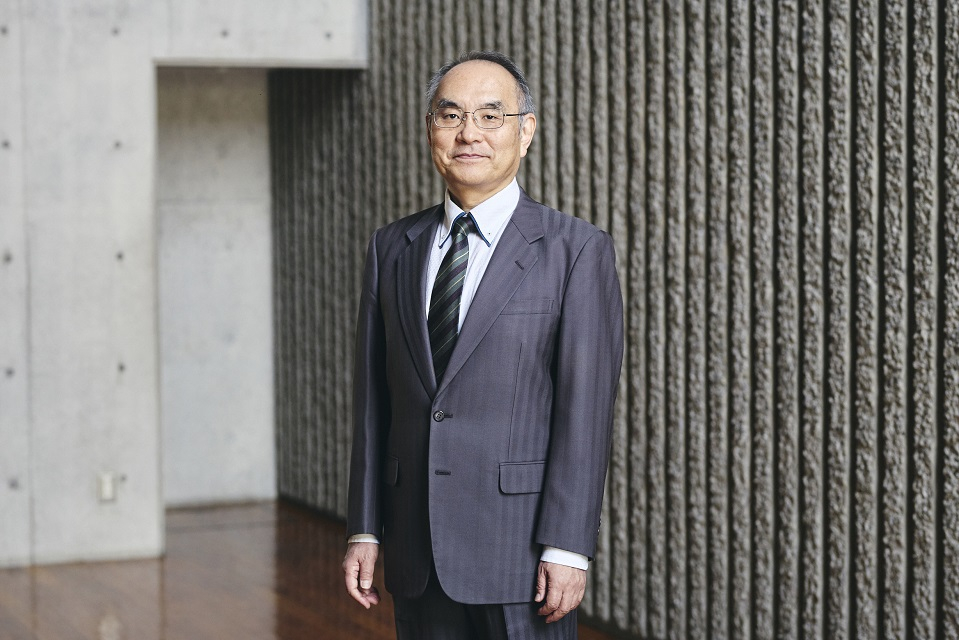
Serendipitous Encounters and One’s Self-Construction
The winds of freedom are breezing through Meiji Gakuin University. More than 12,000 students from Japan and overseas feel this comfortable breeze as they, together with a diversity of researchers, faculty members, and administrative staff in a variety of specialized fields, come together to enrich campus life. A good number of our students also engage in overseas study.
University life provides students with opportunities to discover new concepts and ways of living, and in the process construct oneself. Often these opportunities materialize as serendipitous encounters. Such an encounter may come when you open up a book you picked off the library shelf, or when you are inspired by a casual remark made by a professor during a lecture, or even when you are just walking along looking at the clouds and thinking about nothing in particular. A university campus is therefore a place for these encounters.
It is through such encounters that one’s self is re/constructed. It is my dearest wish that you will seek to construct a self that is capable of thinking tenaciously, and caring both for oneself and others and indeed the global environment.
Hiroaki Ono
Vice President (Professor, Faculty of Economics)
Responsibilities: Financial affairs, liberal arts education reform, expanding and enhancing AI/data science education, research support, digital transformation (DX), internal quality assurance, university academic reform
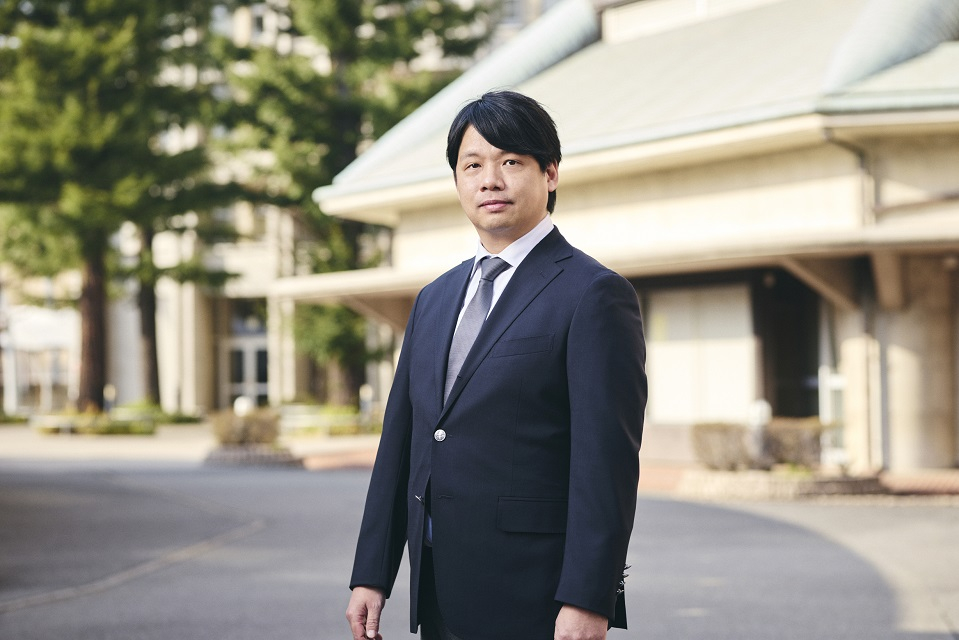
Career-oriented growth opportunities
At Meiji Gakuin University we can provide you with opportunities that will assist in your future career development. Every single day, new ideas and knowledge are constantly being updated as global academic research continues to progress. New knowledge that can be obtained at universities and graduate schools may eventually become common knowledge, or it may be superseded by even newer ideas. While study at university may involve the acquisition of cutting-edge knowledge, the true value lies in the process of acquisition and how you can ensure that what you have learned is passed on to your future self. With career development firmly in mind, I advise you all to rise to the challenge of further honing your skills and expertise.
Students will be asked to provide their opinions on university reform through a variety of surveys. While we cannot guarantee that we will be able to realize all of your suggestions, we very much appreciate your various responses and opinions, as these underpin our internal quality assurance system and will ultimately lead to improvements in the educational system we provide to you, our students.
On a different topic, from April the Council for Cultural Affairs will initiate discussions on a proposal based on the Hepburn system of romanization. On a personal note, since April last year I have ensured that the English spelling of my name on campus has been standardized from “Ohno” to “Ono,” and it is my hope that the discussions in the Council for Cultural Affairs will result in the Hepburn system, which was devised by our school’s founder, becoming even more widely utilized.
Shinichi Oka
Vice President (Professor, Faculty of Sociology & Social Work)
Responsibilities:Christian Education Promotion Council (MG Foundation), Council for the Promotion of Christian Education in Universities, Volunteer Center, collaboration with other universities and industry, university academic reform
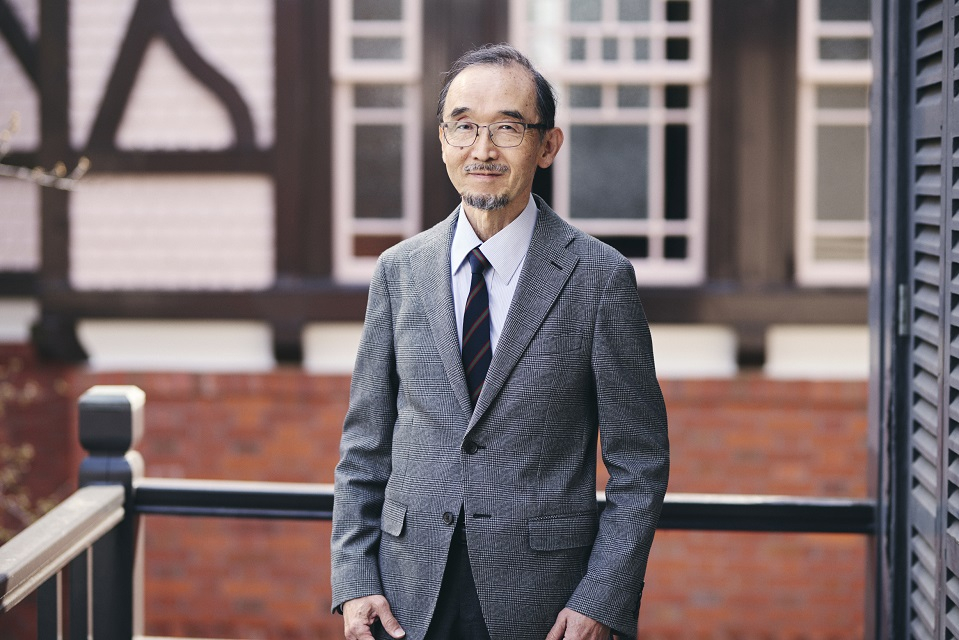
Traditions of a mission school
During my student days it was in my first period of overseas study in Europe when I embarked on a solo trip. I can still clearly remember that no matter how cheap the hotel I stayed, there would always be a Bible in the desk drawer. When I studied my major of social security in Europe, I came to understand just how closely related to Christianity it is. The Bible tells us to love thy neighbor and help others, and it is these precepts that underpin the basic values of the welfare state. In actual fact, it is the church and monastic orders that have a long history of being the providers of welfare activities and assistance.
Meiji Gakuin is one of the oldest mission schools in Japan. Meiji Gakuin’s diverse activities in volunteerism, international cooperation, welfare, and social contribution have their roots in Christian values, and our university has a tradition of assisting vulnerable members of society who are encountering problems. We want our students to also learn about Christian values and disseminate such values as they venture out around the world. Throughout international society there are many people who share our values who are waiting to interact with you. I hope that you will all think about what you can do for world peace and social justice and put those thoughts into actions.
Hidetada Okamyo
Vice President (Professor, Faculty of Letters)
Responsibilities: Career Center, Center for Teacher Education, Alumni Association, Shirokane campus facility management, university academic reform
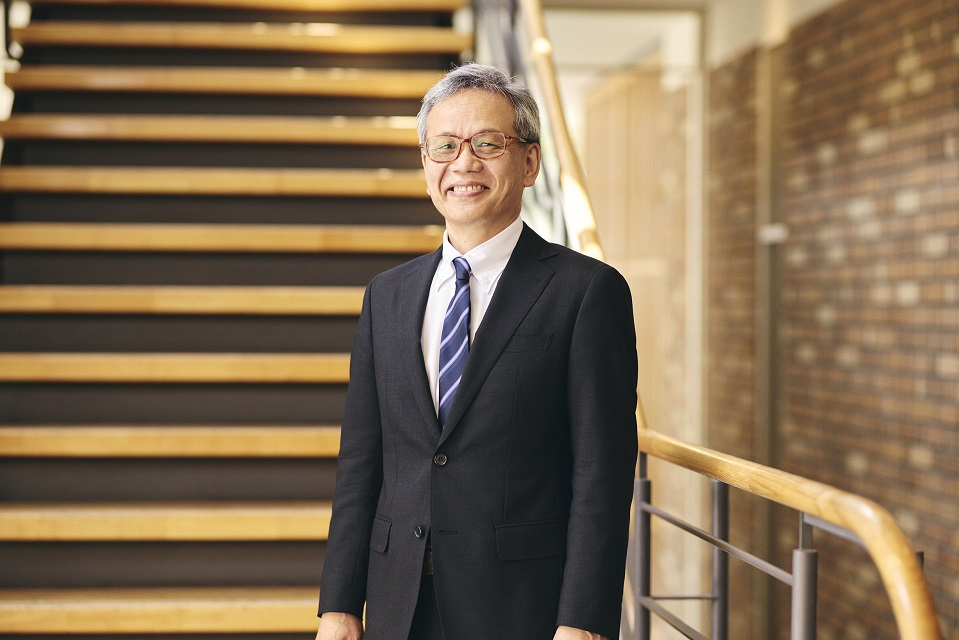
How will you spend your four years at university? And how will it differ from your high school years?
A distinctive feature of university is that it is the students who decide their own courses of study. Depending on the department, there may be some compulsory subjects, but other than that, students must decide for themselves what they will study.
Universities offer both liberal arts and specialized education. I know that students have a strong desire to “take specialized courses as soon as possible.” However, learning about something other than one’s own specialty can be a source of future personal growth. Knowledge of fields other than your own, different methods of analysis, and varying methods of argument can also be applied to your own field. When you are in a teaching position, you realize just how important such perspectives are.
Through to graduating from high school you will have learned many things within the school environment. At university too, you will gain even more knowledge through campus life. Depending on your department, you may go out and conduct research using seminars and other activities. This kind of experience is of the utmost importance. Other than seminars, you can also engage in various activities during vacations (summer, winter, spring). You can also make your own plans and gain practical experience.
Why not aim to further improve yourself at university, in an environment very different from your high school years?
Miaki Kuroda
Vice President (Professor, Faculty of Law)
Responsibilities: Entrance exams and high school outreach, public relations, community engagement, Shirokane campus facility management, university academic reform
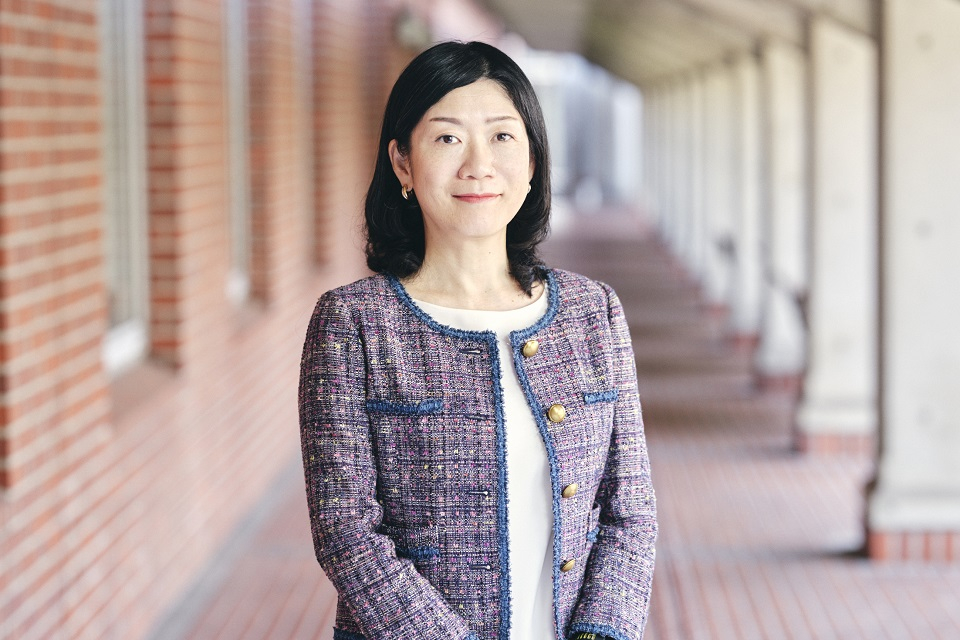
Building a foundation for your future working life
Welcome to Meiji Gakuin University. During your time here at Meiji Gakuin University, your studies will help you cultivate a deeper understanding of society and its workings. You will also have many opportunities to enhance your people skills through extracurricular and volunteer activities undertaken in the spirit of “Do for Others.” Your studies, encounters, and experiences here will shape your character. The self-insight that you gain will, in turn, serve as a basis for understanding others and finding fulfillment in your future professional life.
As you will come to see, problems do not always have a single answer. This can be confusing, but it is important to face such challenges proactively, for the fearless pursuit of challenge is the foundation for success in any field. It is the springboard from which you will contribute to our increasingly complex and global society.
You will meet various people during your time here, including professors, administrative staff, friends, and fellow students. Together, you will learn and have new experiences. Now that you have enrolled at Meiji Gakuin University, I hope that you will make the most of your time here and build a foundation for your future working life, which will be much longer than your student life. All of us here at Meiji Gakuin University are here to support you as you take on new challenges.
